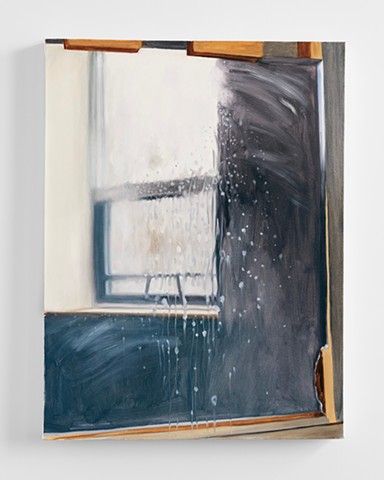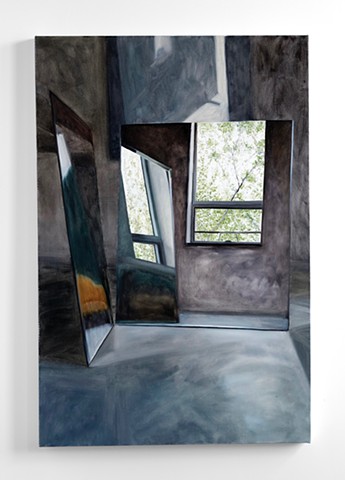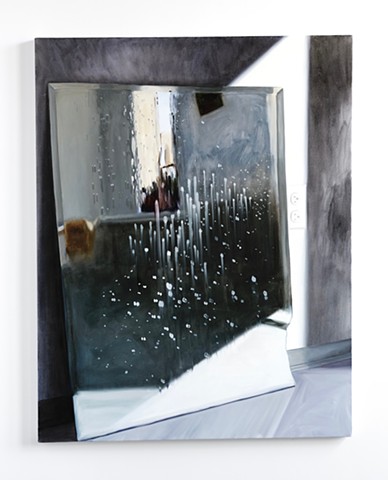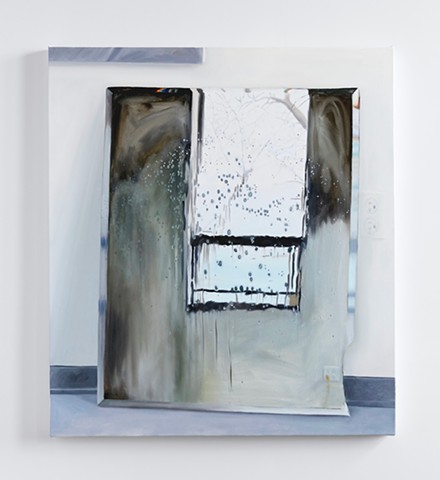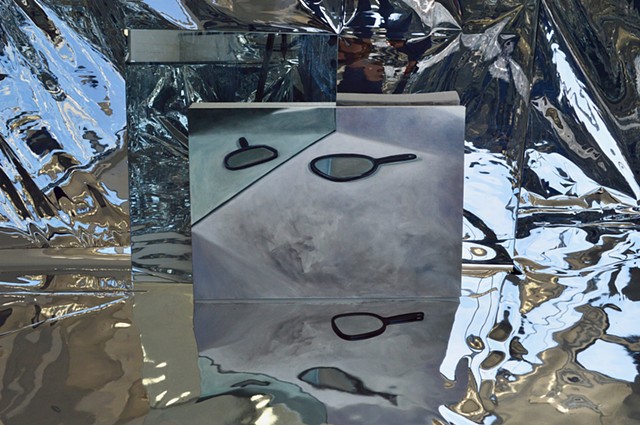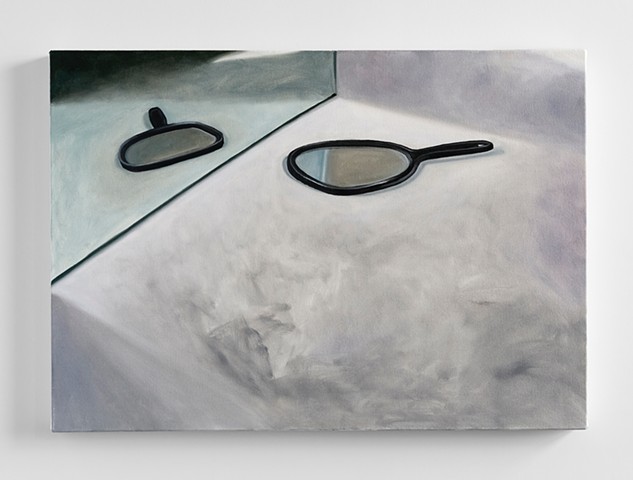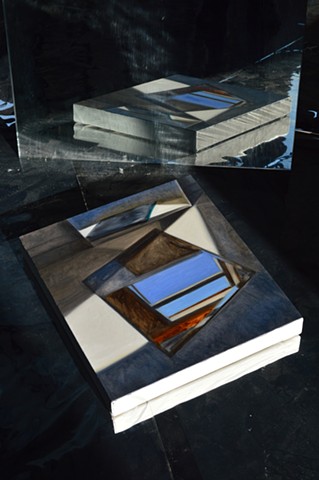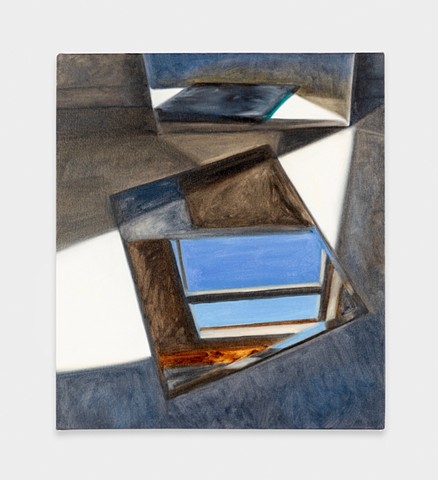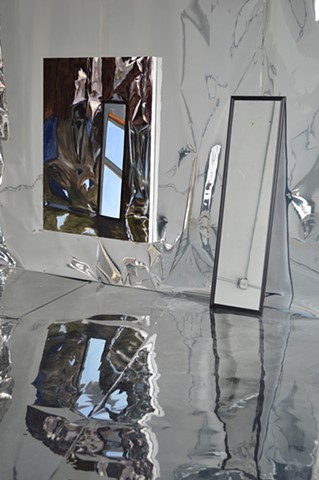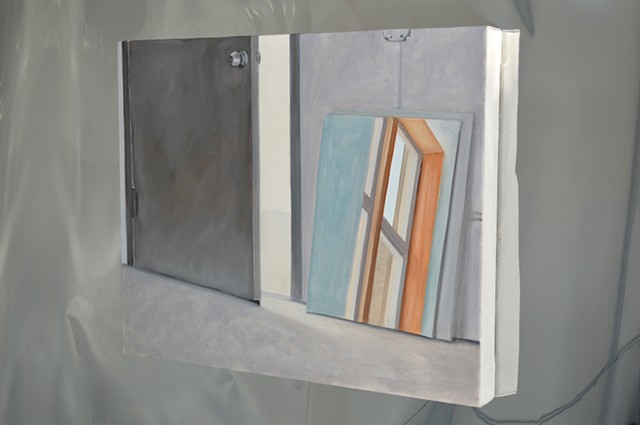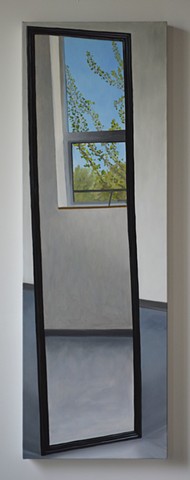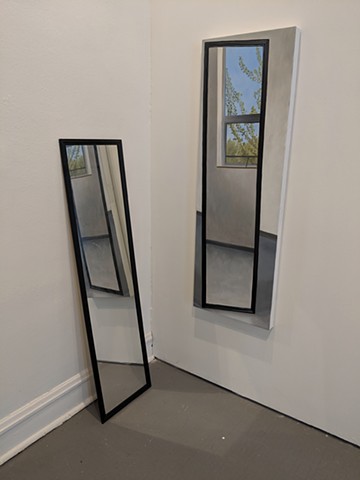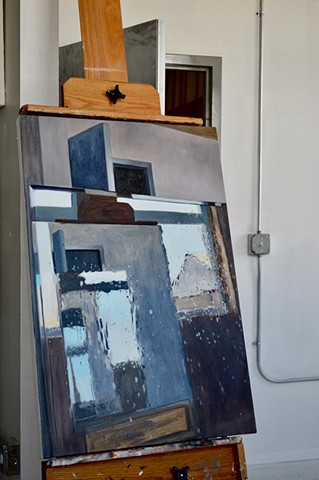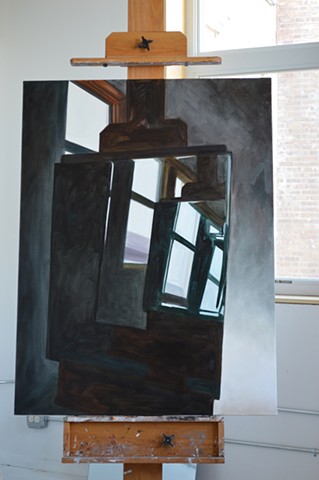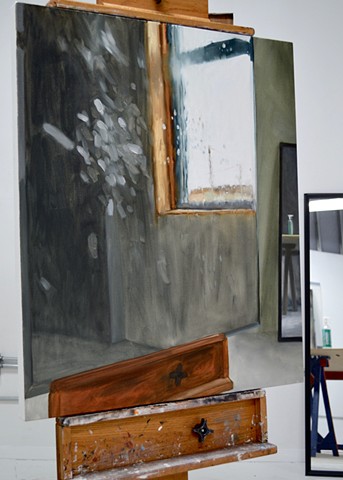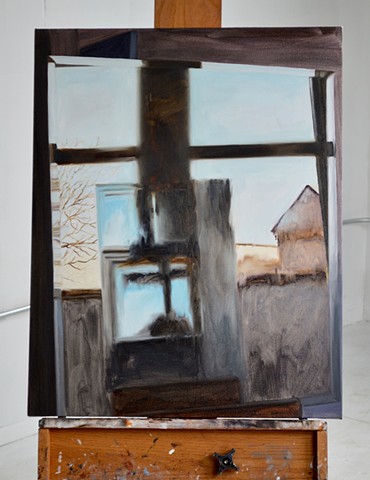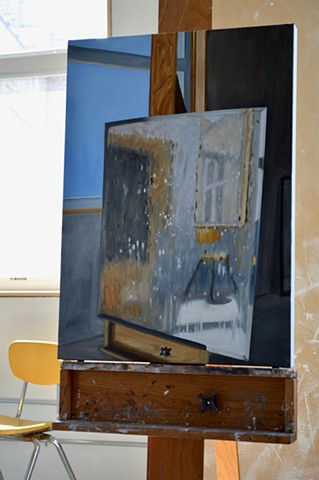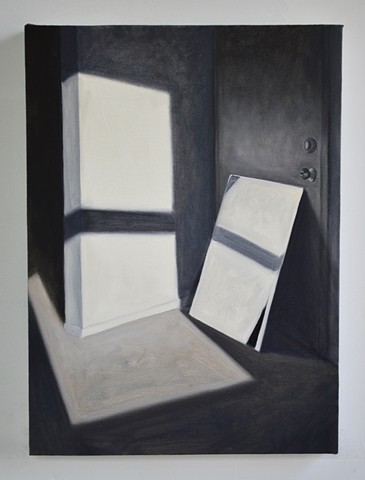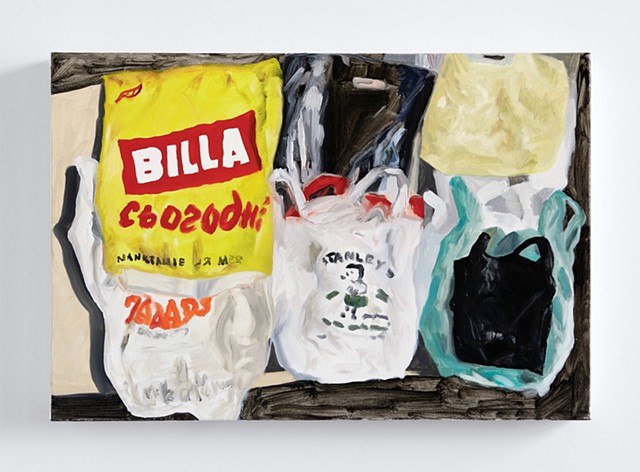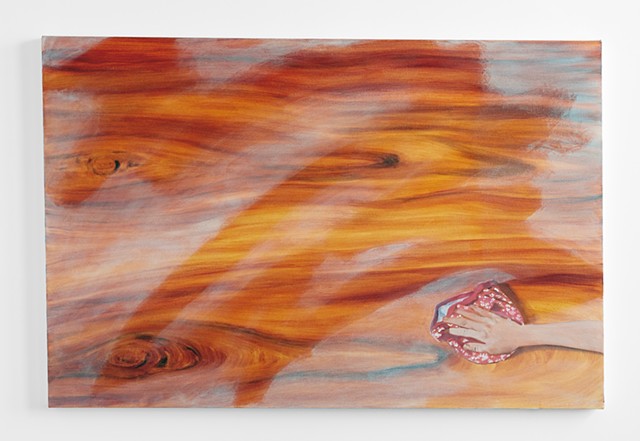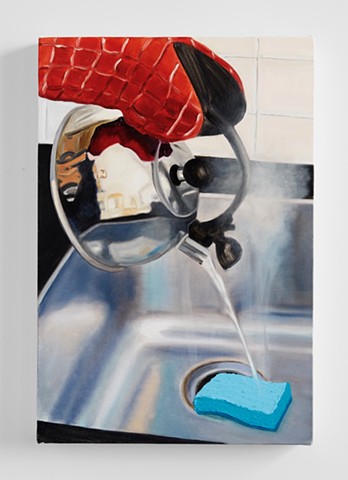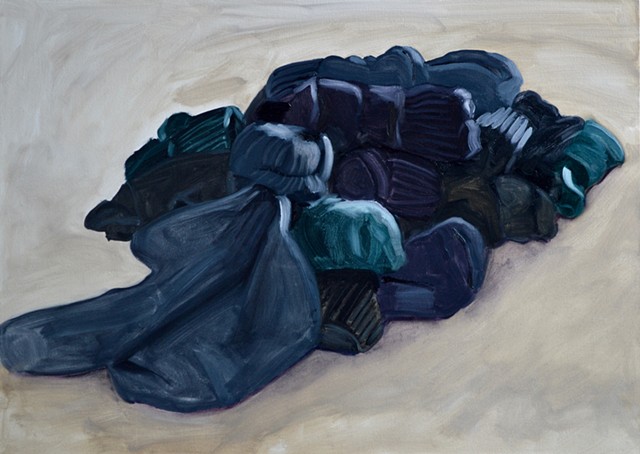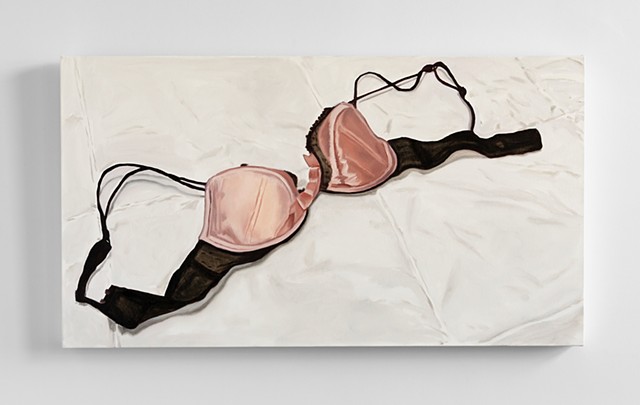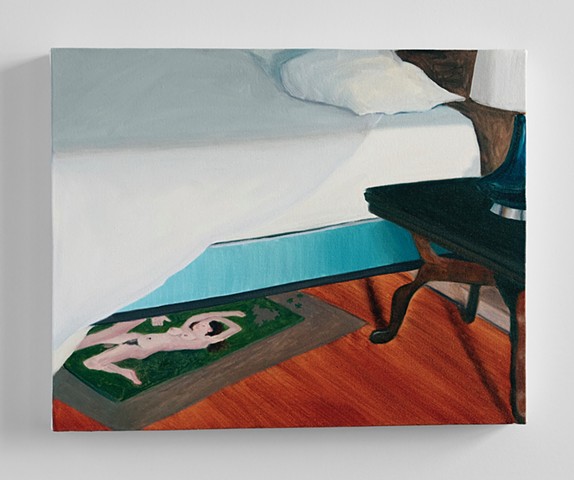Mirrors
When systems function well, we hardly notice them, but when they break they become visible. For example, our bodies work continuously to maintain homeostasis, but when we become ill we become aware of all that invisible effort, of how good we used to feel. Mirrors become more visible when they are dirty or dripping with streaks of glass cleaner, when the mirror is not functioning how a mirror is supposed to function. To make a painting of a mirror is an attempt to paint the unseen and unnoticed. It is an exercise in looking and an attempt at real awareness.
In these paintings, a window is reflected in the mirror. A window is another framing device, another object that is hard to see. We are compelled to look out a window, even if the view is not picturesque. Schopenhauer wrote that when we look through a window that view lets us forget our striving for a moment. The window is a respite from the struggle to see, and makes the environment comprehensible.
Recently, I have begun to show these paintings in a mirrored room, transforming the room into a reflective, perhaps even disorienting space. My hope is that this transformed space will cause viewers to see the room and the paintings with fresh eyes. I expect that over time, with viewers walking on the mirrored floor, it will become scratched or covered in footprints spotlighting the cleaning tasks that originally inspired this work.
These mirror paintings come from of a larger series about cleaning. They deal with surface-- streaky wet mirrors, glassy windows, and sun-streaked floors. They also reflect what is just beneath that surface-- that women give thousands of hours of unseen physical and emotional labor to the people around them. Learning to paint is about learning to see-- to notice the hue, saturation, and value of the objects around us. But I would add that painting is also about learning to acknowledge these things that are right in front of us and to care about them.
